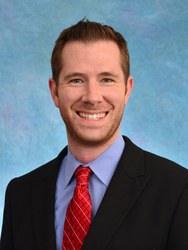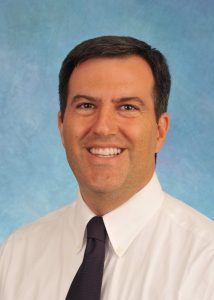
Ria Dancel, MD, FAAP
Dr. Ria Dancel is dually appointed in the Department of Medicine and the Department of Pediatrics. She is the Director of the Medicine Procedure Service, led by proceduralist attendings working with resident physicians to perform diagnostic and therapeutic bedside procedures. This service was created in 2014 in order to provide efficient and safe procedures and to standardize resident education and competency. Each year, the service performs hundreds of paracenteses, thoracenteses, lumbar punctures, and central venous catheterizations.
Dr. Dancel is a recognized leader at UNC in the education of bedside ultrasound guidance for procedures. She is the Internal Medicine champion of an inter-departmental QI initiative to standardize simulation based central venous catheterization training for first year residents in the departments of internal medicine, surgery, anesthesiology, emergency medicine, and family medicine. She firmly believes that simulation training is necessary to reduce complications and as a result, was asked to join a healthcare system wide task force to reduce central line associated blood stream infections. Her role is to ensure that physicians have the tools and education needed to employ evidence based methods that reduce infection risk at the time of central venous catheter insertion.
Dr. Dancel is certified in critical care ultrasonography through the American College of Chest Physicians and has taught ultrasound guided procedures at a regional and national level. In collaboration with colleagues and mentors from other large academic institutions, she has co-authored publications on the use of ultrasound to guide lumbar punctures and to evaluate pleural effusions.
Listen to Dr. Dancel’s interview with Dr. Falk on the UNC Medicine Procedure Service.
Carlton Moore, MD, MS

Dr. Carlton Moore’s research efforts focus on utilizing health information technology to improve quality of care and patient safety. Most electronic health records (EHRs) don’t have the requisite functionality to generate alerts and reminders for clinician to follow-up on abnormal imaging and pathology results buried in free-text narrative reports (e.g., a chest CT report describing a 3.5 x 3.0 cm spiculated right upper lobe lung mass). Dr. Moore’s research focuses on using natural language processing (NLP) technology to identify and extract abnormal results from imaging and pathology reports, and then converting the results into a structured format that can be used to generate EHR alerts and reminders for clinicians. Dr. Moore’s projects have used NLP to accurately identify and extract abnormal results in free-text clinical reports such as mammograms, Papanicolaou smears, chest CTs, ventilation-perfusion scans, and venous Doppler ultrasound studies.
Additionally, Dr. Moore, in collaboration with Dr. Gerardo Heiss in the Department of Epidemiology, is working on a project that uses NLP technology to assist in cohort identification in a large epidemiologic study. He is an investigator on the Atherosclerosis Risk In Communities (ARIC) study evaluating use of NLP and machine-learning technologies to improve cohort identification of patients hospitalized with acute heart failure and myocardial infarction using free-text clinical notes in EHRs.
Finally, Dr. Moore, in collaboration with Dr. Lukasz Mazur in the Department of Radiation Oncology, is working on a project to evaluate cognitive workload and errors as physicians perform tasks in the Epic EHR involving follow-up of abnormal test results. The goal of the project is to identify opportunities to optimize EHR interfaces that will reduce task errors and improve task efficiency. The project hopes to develop and validate measures of cognitive workload (both subjective and objective) while physicians perform EHR-based tasks that are sensitive and specific predictors of future risk for task errors.
Christopher A. Caulfield, MD

Dr. Christopher Caulfield is an Assistant Professor of Medicine in the Division of Hospital Medicine and Associate Medical Director with Clinical Care Management at the UNC Medical Center. His interests include the appropriate utilization of hospital resources and improvement in the transition of patients through the hospital system. His focus is on limiting unnecessary hospitalizations and identifying patients who are at increased harm for being hospitalized.
Based upon the high percentage of low risk chest pain observation admissions at UNC, Dr. Caulfield worked with a team to create a chest pain risk score that could be used to further identify patients who could be discharged home from the emergency department. Expanding upon the focus of low risk chest pain admissions from the emergency department, he and several hospitalists reviewed the practice of hospitalists at UNC performing emergency department consultations and discharging patients home after referral for admission. Major findings from this research included that 4 of 5 patients did not return to the ED, and 9 of 10 patients did not require hospitalization within 30 days of an initial ED consult by a hospitalist. Abstracts from this project were presented as a poster presentation at the Society of Hospital Medicine Annual Session 2015, an oral presentation at the Society of Hospital Medicine Annual Session 2016 and as a combined poster and oral presentation at the Society of General Internal Medicine Annual Session 2016.
Currently, Dr. Caulfield is continuing to evaluate the benefit of providing internal medicine consultation for patients in the emergency department to avoid unnecessary hospitalization. He is also creating a quality and performance metric dashboard for the Division of Hospital Medicine. Dr. Caulfield attends on the hospitalist and general medicine services, provides procedural and ultrasound expertise on the wards, and teaches residents and medical students in the inpatient setting.
Richard Hobbs, MD

Dr. Richard Hobbs is an Associate Professor of Internal Medicine and Pediatrics at the UNC School of Medicine. He is an academic hospitalist who specializes in taking care of both adults and children who have been hospitalized. Additionally, Dr. Hobbs is the Director of Student Education in Pediatrics at the UNC School of Medicine where he oversees curriculum designs and delivery of all pediatric educational content across the state.
Dr. Hobbs is passionate about integrating technology into medical education and training physicians to compassionately use technological resources to care for patients and families. As Director of the Technology in Medical Education (TiME) program, he has spearheaded an initiative to put an iPad mini in the hand of each student, loaded with the necessary resources to improve education and patient care. His primary research efforts involve studying the implementation and efficacy of mobile technology into medical school curriculum.
Outside of his formal roles in the School of Medicine, Dr. Hobbs always seeks to use his skills to serve those in need. As a volunteer physician and board member of Samaritan Health Center in Durham, NC, Dr. Hobbs works to ensure equal access to quality medical care for disadvantaged populations. With his colleagues, Dr. Allen Liles and Dr. Michael Gilchrist, he has researched trends in volunteerism among local hospitalists.
In addition to local work, Dr. Hobbs also has a heart for global medicine, with active work in Honduras, Nicaragua and Malawi. With all of these endeavors, Dr. Hobbs seeks to incorporate medical students and residents in these projects, all in the name of creating a compassionate and capable generation of future physicians.
John Stephens, MD

Dr. John Stephens is an Associate Professor of Internal Medicine and Pediatrics, specializing in Hospital Medicine. Research interests include hospital-based quality improvement and fostering resident scholarship. Publications include a study of standardizing the evaluation process for patients referred for admission for detoxification from alcohol and a study of the results of implementing a curriculum for writing case reports among pediatric residents.
Dr. Stephens is currently leading a quality improvement effort to standardize and improve the discharge process for hospitalized patients with alcohol use disorders. This project is focused on standardizing counseling on the use of naltrexone, a medication used for the maintenance of sobriety, as part of the discharge process. Pilot data from the project have shown significant improvement in 30-day ED visits post discharge and an expansion in the scope of this work is ongoing.
In the realm of augmenting resident scholarship, Dr. Stephens developed a curriculum to teach the art of writing and presenting case reports. Implementation of this curriculum correlated with a significant increase in the number of resident case report presentations at UNC’s Pediatric Evening of Scholarship. Results from this project were published in a peer-reviewed manuscript. He continues to be an active faculty mentor for resident case reports, serving as a senior author on multiple published case reports and abstract presentations at regional and national meetings.